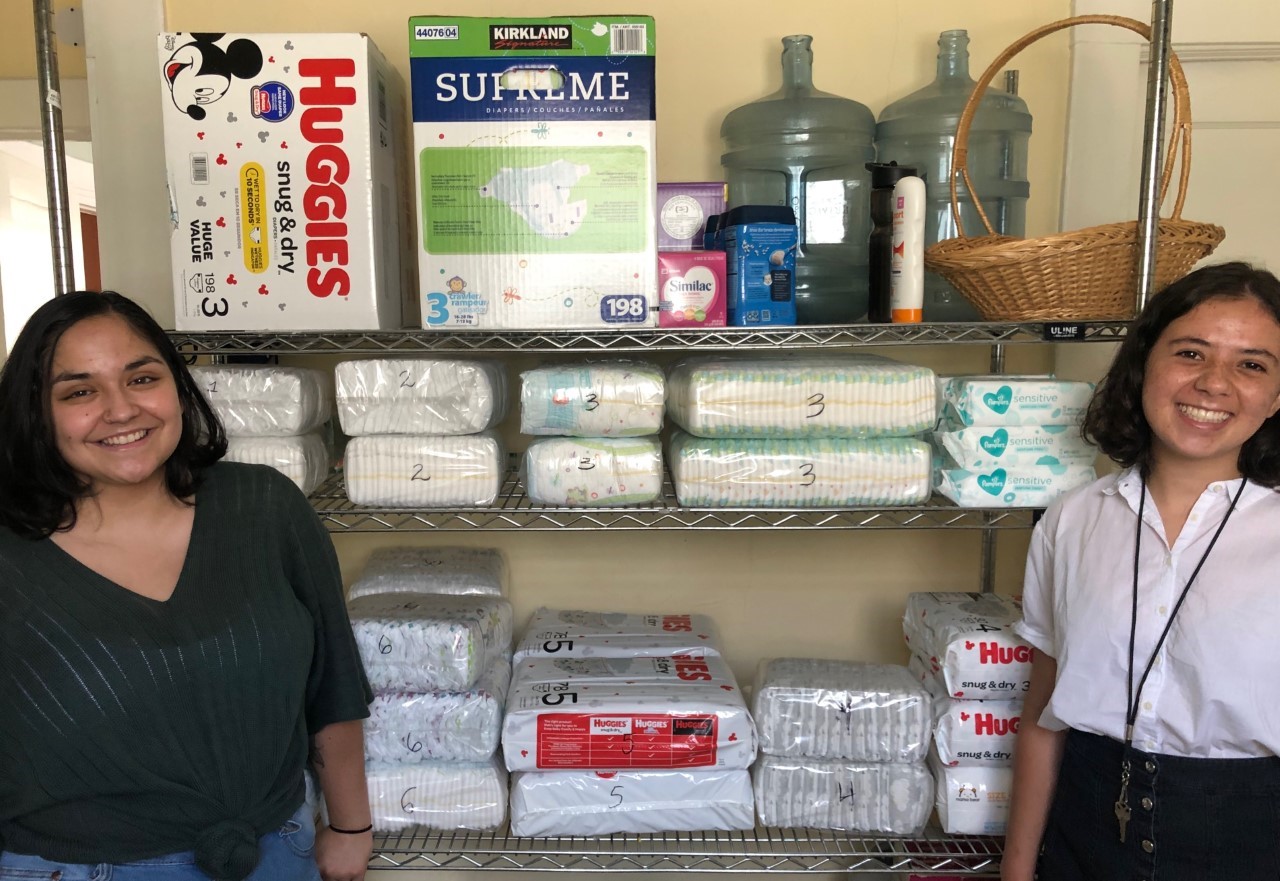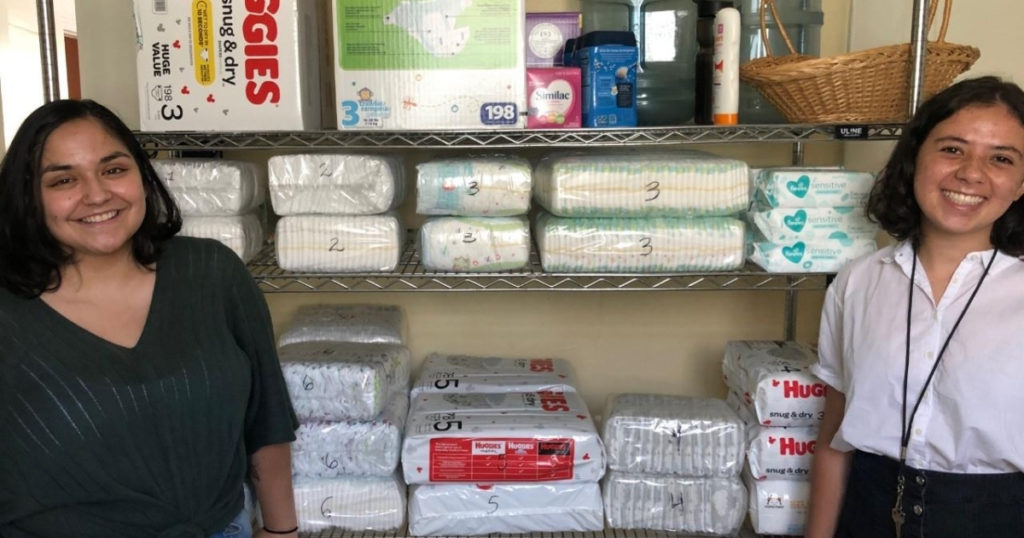Kansas church grant aids immigrant, refugee neighbors during pandemic
 When COVID-19 shut down much of the U.S. economy, among the people hardest hit were immigrant and refugee neighbors of Plymouth Congregational Church of Lawrence, Kansas.
When COVID-19 shut down much of the U.S. economy, among the people hardest hit were immigrant and refugee neighbors of Plymouth Congregational Church of Lawrence, Kansas.
Most of them were working in hotels and restaurants before losing their jobs in the pandemic. This has left many of them at high risk for homelessness and food insecurity.
Plymouth UCC and its already active Plymouth Immigrant and Refugee Alliance (PIRA) set out to meet the burgeoning immediate needs of the 52 vulnerable immigrant families who were already in case management with partner Centro Hispano.
Among contributors to this effort are the UCC’s COVID-19 Refugee and Asylum Fund, with a grant of $2,500. The fund is to assist churches and community organizations that provide relief to refugees and asylum seekers with needed caused or worsened due to the pandemic.
The grant money “will help reduce the strain on these families with cash assistance for rent, utilities, food, diapers, baby formula, medications, feminine hygiene products and other needs,” said Plymouth’s Becky Eason, explaining that “many cannot access SNAP, unemployment benefits or a stimulus check due to their immigration status.”
Since 2006, Centro Hispano of Lawrence has been serving Latinx immigrants – mostly indigenous people from the Guerrero region of Mexico – with strength-based case management and counseling services, including help with accessing healthcare, housing, legal services and schooling for children, said Executive Director Lydia Diebolt.
Diebolt shared some ways the $2,500 grant is being used. She said $600 went for the bulk purchase of 1,300 diapers, easing multiple families’ struggle to buy an item that is normally difficult to afford.
Other beneficiaries so far have included:
- A Guatemalan indigenous mother of two preschoolers, who came to the United States to escape the violence and gangs. Her husband was just deported. She couldn’t afford their apartment on the wages from her part-time job and had to move out. She found a new place, but it wasn’t available for 10 days. “We spent $485 on a hotel room and paid the security deposit on her new apartment,” Diebolt said. “This kept a family from being homeless.”
- A Mexican mother whose young child suffers from a serious illness and weakened immune system. “She can’t risk going out right now to work and bringing COVID-19 back. That could be fatal for the child,” Diebolt said, noting that the woman’s husband also was deported. Centro Hispano is using some of the UCC grant to help this family with rent.
Normally PIRA and Centro Hispano serve 85 families a year with case management, also assisting “drop-ins” for critical one-time specific needs.
PIRA is “the hub in a wheel of services available,” Eason said. It both refers immigrant families to Centro Hispano and publicizing their needs “to a large, responsive email list of Plymouth UCC members and others, helping to create a more friendly, safe and supporting environment for our immigrant and refugee neighbors through awareness, advocacy, and assistance.”
“Our building is closed but the church is not closed,” she said. “We need to go on being the church. One way is to be sure the most fragile of our neighbors are being taken care of.”
Pictured: Isabel (left) and Amelia Carttar. They are sisters and case managers at Centro Hispano, who organized the diaper pantry for immigrant families served by the center.
Related News
A Moment of Silence
The weekend news was alarming. Two students shot and killed with 9 injured at Brown University...
Read MoreIn hope-filled worship service, UCC and United Church of Canada celebrate full communion past and future
On Saturday, Dec. 13, many from the United Church of Christ (UCC) and the United Church of...
Read More‘A Gift of God to the World:’ Christmas greetings from the General Minister and President
As Christmas quickly approaches, UCC General Minister and President/CEO the Rev. Karen Georgia...
Read More


